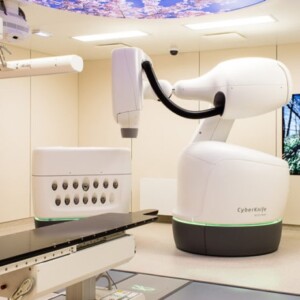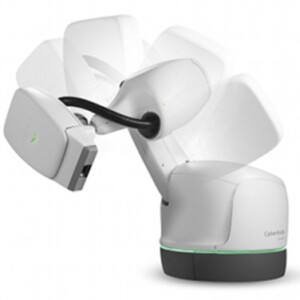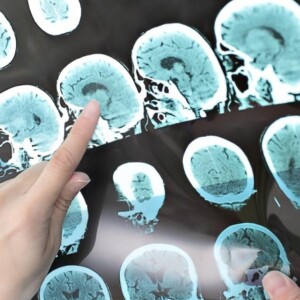

Hale Başak Calar is a radiation oncology specialist at Anadolu Medical Center.
In 1998, Hale Başak Chalar graduated from the medical faculty of Gazi University in Ankara, in 2003 – from Marmara University. Then she worked in the Department of Radiation Oncology at Hacettepe University (Ankara). In 2006-2007. Hale Basak Chalar worked at Harvard University. In 2015, she received the title of professor at Istanbul Medipol University.
Membership in organizations:
Dr. Enis Ozyar is a prominent Radiation Oncologist with over 30 years of rich experience.
His clinical interests are Brachytherapy, Stereotactic body radiation, Gynaecological malignancies, and Head and Neck tumours.
Membership:
Dr. Banu Atalar is one of the best radiation oncologist in Turkey with over 15 years of clinical experience.
Dr. Banu Atalar performs Stereotactic Radiation Therapy (SRT) and Intensity Modulated Radiation Therapy (IMRT), CyberKnife and Proton Therapy to kill cancer cells and tumors.
Membership:
She also received the IASLC International Mentoring Award in 2018.
Dr. Fulya Agaoglu is a qualified radiation oncologist and has extensive experience in breast cancer, prostate cancer, spinal tumors and brain cancer.
She has published many scientific articles in national and international journals.
Membership:








Check the cost of treatment and get 20 000 € from international foundation
Get financial help up to 20 000 € for your child treatment
Medical consultant
Turkish oncologist will provide an individual chemotherapy program.
Israeli oncologist will provide an individual chemotherapy program.
Spanish oncologist will provide an individual chemotherapy program.
German oncologist will prepare an individual chemotherapy program.
Polish oncologist will prepare an individual chemotherapy program.
Italian oncologist will prepare an individual chemotherapy program.
Turkish radiologist will prepare a personalized radiation therapy program
Israeli radiologist will draw up an individual radiation therapy program.
German radiologist will draw up an individual radiation therapy program.
Spanish radiologist will draw up an individual radiation therapy program.
Polish radiologist will prepare an individual radiation therapy program.
Italian radiologist will draw up an individual radiation therapy program.
Turkish plastic surgeon will make an individual operation program.
German plastic surgeon will make an individual operation program.
Israeli plastic surgeon will make an individual operation program.
Italian plastic surgeon will make an individual operation program.
Polish plastic surgeon will make an individual operation program.
Spanish plastic surgeon will make an individual operation program.
Turkish orthopedic surgeon will make an individual operation program.
Israeli orthopedic surgeon will make an individual operation program.
German orthopedic surgeon will make an individual operation program.
Italian orthopedic surgeon will make an individual operation program.
Lithuanian orthopedic surgeon will make an individual operation program.
Polish orthopedic surgeon will make an individual operation program.
Ukrainian orthopedic surgeon will make an individual operation program.
Spanish orthopedic surgeon will make an individual operation program.
Turkish neurosurgeon will study the medical situation and give recommendations for treatment.
Israeli neurosurgeon will study the medical situation and give recommendations for treatment.
German neurosurgeon will study the medical situation and give recommendations for treatment.
Italian neurosurgeon will study the medical situation and give recommendations for treatment.
Lithuanian neurosurgeon will study the medical situation and give recommendations for treatment.
Spanish neurosurgeon will study the medical situation and give recommendations for treatment.
Ukrainian neurosurgeon will study the medical situation and give recommendations for treatment.
Turksih doctor will answer your questions
Israeli doctor will answer your questions
German doctor will answer your questions
Italian doctor will answer your questions
Polish doctor will answer your questions
Ukrainian doctor will answer your questions
Spanish doctor will answer your questions
Israeli orthopedic surgeon prepare an individual surgical plan and recomendations
Turkish orthopedic surgeon prepare an individual surgical plan and recomendations
German orthopedic surgeon prepare an individual surgical plan and recomendations
Italian orthopedic surgeon prepare an individual surgical plan and recomendations
Lithuanian orthopedic surgeon prepare an individual surgical plan and recomendations
Polish orthopedic surgeon prepare an individual surgical plan and recomendations
Spanish orthopedic surgeon prepare an individual surgical plan and recomendations
Lithuanian doctor will answer your questions
After examining your situation, doctor will make an individual price offer.
Doctor-consultant will answer all your questions about the cost of treatment, the choice of a doctor and fully organize treatment abroad.

we will contact you within 15 minutes
 Cyberknife in Turkey is a medical service that is becoming more and more popular among foreign patients. Turkish medicine and oncology has made a real high-tech breakthrough over the past 20 years. Turkish clinics have already gained experience in successful cancer treatment using innovative technologies. With the help of the Da Vinci robotic surgical system, surgeons perform minimally invasive operations. Tumors are removed through the “keyhole”. Neoplasms in the brain that are inaccessible for surgery are treated using the Gamma Knife radiosurgical unit.
Cyberknife in Turkey is a medical service that is becoming more and more popular among foreign patients. Turkish medicine and oncology has made a real high-tech breakthrough over the past 20 years. Turkish clinics have already gained experience in successful cancer treatment using innovative technologies. With the help of the Da Vinci robotic surgical system, surgeons perform minimally invasive operations. Tumors are removed through the “keyhole”. Neoplasms in the brain that are inaccessible for surgery are treated using the Gamma Knife radiosurgical unit.
For more than a decade, Turkish oncologists have been using the innovative CyberKnife system for non-surgical cancer treatment. Currently, 10 CyberKnife units are used in in Turkish clinics, 5 of them are located in clinics in Istanbul. The cost of oncology treatment with the help of Turkey’s CyberKnife is two times less than in Europe and Israel.
 CyberKnife is a robotic system for the non-invasive (non-surgical) treatment of various tumors in any area of the body in adults and children. In this type of radiation therapy, a high dose of ionizing radiation is applied to the tumor with surgical precision. Therefore, the name of the apparatus includes the word “knife”.
CyberKnife is a robotic system for the non-invasive (non-surgical) treatment of various tumors in any area of the body in adults and children. In this type of radiation therapy, a high dose of ionizing radiation is applied to the tumor with surgical precision. Therefore, the name of the apparatus includes the word “knife”.
Oncologists use CyberKnife to treat tumors that are inaccessible for surgical removal or neoplasms located close to vital organs and structures and also in patients who, for various reasons, cannot be operated on.
Radiologists use two radiation technologies:
• stereotactic radiosurgery (SRS) – single irradiation with the maximum dose;
• stereotactic fractional radiotherapy (SBRT) – 2-5 times irradiation with lower doses.
These types of radiotherapy with stereotaxis, with three-dimensional tumor localization, are also carried out using other linear accelerators, such as, for example, TrueBeam. The previously developed Gamma Knife radiosurgical system is also widely used.
Cyberknife has, in comparison with them, a number of important advantages. In addition, the system is constantly being improved. Now the fourth generation Cyber-knives already exist in clinics. The effectiveness of this treatment has been proven by many clinical studies and, according to the Accuray CyberKnife manufacturer, is 95%. Despite the fact that CyberKnife has been used in oncology for more than 20 years, it remains the most innovative device for the non-surgical treatment of cancer, benign tumors, and a number of other pathologies.
 The cyberknife consists of a compact linear accelerator, a movable robotic arm with six degrees of freedom, a computerized visualization, and navigation system that ensures the accuracy of irradiation. The accelerator creates radioactive radiation. The radiation delivery system focuses a beam of 1,400 point radiation sources with submillimeter precision onto the tumor. Moreover, each individual beam taken is harmless to healthy tissues. When converged in one place, a powerful point irradiation occurs on the tumor. It has a damaging effect on the DNA of cells and stops the growth of cancer cells. A robotic “arm” with an accelerator can rotate around the patient and irradiate the tumor from different positions and at different angles. This makes it possible to irradiate the most inaccessible neoplasms.
The cyberknife consists of a compact linear accelerator, a movable robotic arm with six degrees of freedom, a computerized visualization, and navigation system that ensures the accuracy of irradiation. The accelerator creates radioactive radiation. The radiation delivery system focuses a beam of 1,400 point radiation sources with submillimeter precision onto the tumor. Moreover, each individual beam taken is harmless to healthy tissues. When converged in one place, a powerful point irradiation occurs on the tumor. It has a damaging effect on the DNA of cells and stops the growth of cancer cells. A robotic “arm” with an accelerator can rotate around the patient and irradiate the tumor from different positions and at different angles. This makes it possible to irradiate the most inaccessible neoplasms.
Cyberknife can be compared to a scalpel that gently “removes” the tumor without affecting healthy tissue. The knife does it without incisions, only with the help of radiation. The maximum effect of therapy occurs after 2-3 months.
The robotic system in the course of treatment automatically determines the exact position of the tumor using X-ray cameras. Irradiation takes into account the displacement of the tumor associated with natural processes in the human body – respiration, the work of the intestines, and other organs. In real time, a complex technology is used to synchronize the movements of the tumor and the position of the beam of rays relative to the neoplasm. Before each delivery of radiation to the tumor, the device automatically performs control images and beam aiming.
Oncologists believe that 10-20% of cancer patients are treated with CyberKnife. Doctors consider this treatment option in the following clinical cases:
• the size of the tumor does not exceed 4-6 cm, it has clear boundaries and is located in the parenchymal organ;
• it is not possible to remove the tumor surgically (hard-to-reach location of the tumor, being close to vital structures, the presence of severe concomitant diseases, the patient’s categorical refusal of surgery);
• additional irradiation of the primary tumor and individual lymph nodes after standard radiation treatment are required;
• in case of tumor recurrence after surgical or radiation treatment.
CyberKnife treatment, like other types of radiotherapy, can be used alone and as part of a combined therapy protocol, in combination with other treatments. For some early-stage cancers, radiosurgery may be an alternative to surgery.
 Indications for radiosurgery or CyberKnife radiotherapy may include the following diseases:
Indications for radiosurgery or CyberKnife radiotherapy may include the following diseases:
• malignant tumors of the brain and spinal cord – gliomas and glioblastomas,
• benign tumors of the brain and spinal cord – pituitary adenoma, meningioma, neurinoma, schwannoma, angioma;
• eye tumor (uveal melanoma);
• arteriovenous malformations of the brain and spinal cord;
• tumors of the head and neck – nasopharynx, palatine tonsil, soft palate, orbit, carotid sinus;
• non-small cell lung cancer;
• breast cancer;
• cancer of the pancreas, liver, kidney;
• prostate cancer;
• metastases in the brain, skull bones, lungs, liver, spine, pelvic bones, lymph nodes;
• trigeminal neuralgia.
Treatment with CyberKnife is prescribed taking into account many factors. First of all, an interdisciplinary team of oncologists evaluates the feasibility of this type of treatment and its advantages over conventional radiotherapy in each case.
The benefits of radiosurgery with CyberKnife outweigh any potential risks.
CyberKnife treatment is:
• completely non-invasive (non-surgical) and painless procedure that does not require anesthesia;
• the most high-precision irradiation of tumor tissues with a large dose;
• maximum preservation of healthy tissues;
• lack of pronounced side effects;
• comfortable conditions for patients during sessions;
• short planning and treatment period, no rehabilitation period.
Therefore, radiosurgery/radiotherapy with CyberKnife is performed on an outpatient basis. Patients require 1 to 5 treatments instead of 20 to 45 with conventional radiotherapy. They maintain their usual activity and quickly return to their usual way of life after treatment.
 Despite the absence of a negative impact on healthy tissues, there are certain contraindications for CyberKnife treatment:
Despite the absence of a negative impact on healthy tissues, there are certain contraindications for CyberKnife treatment:
• the size of the tumor/metastases is more than 6 cm;
• advanced cancer and multiple metastases;
• serious condition of the patient, exacerbation of severe chronic diseases;
• mental disorders, instability of the spine, which does not allow for 30-40 minutes to remain still during the irradiation session;
• severe cerebral edema, displacement of brain structures, hydrocephalus in brain tumors;
• liver failure in the case of liver cancer.
Typically, these patients are not referred by oncologists for CyberKnife treatment. CyberKnife treatment centers carefully select candidates for stereotactic radiosurgery or radiotherapy.
The Gamma Knife radiosurgical unit has a number of significant differences:
• it is used only for irradiation of neoplasms and other pathologies inside the skull;
• Gamma Knife contains only 200 point sources of radiation, so a lower dose of radiation can be applied to the tumor, which makes it possible to destroy tumors no larger than 3 cm;
• during the irradiation session, the patient’s head is fixed to the table with the help of a special rigid frame (framework);
• only 1 irradiation session is performed, which lasts 2-3 hours.
At the same time, Gamma Knife remains the “gold standard” in the treatment of a number of brain tumors and a more affordable method of radiosurgery, due to the lower cost of the procedure.
In Turkey, patients are treated with CyberKnife in the well-known Anodolu, Acibadem, and Medipol clinics in Istanbul. These medical centers have the equipment necessary for accurate diagnosis, as well as qualified specialists to carry out this type of treatment in accordance with international standards. Therefore, the medical service “CyberKnife in Turkey” is in demand by foreign patients.
 When remotely consulting the medical history and medical records of a foreign patient who is a candidate for CyberKnife treatment, Turkish specialists carefully evaluate the feasibility of the procedure. Only those patients in whom this type of treatment will lead to a significant result are invited for treatment.
When remotely consulting the medical history and medical records of a foreign patient who is a candidate for CyberKnife treatment, Turkish specialists carefully evaluate the feasibility of the procedure. Only those patients in whom this type of treatment will lead to a significant result are invited for treatment.
The planning of the procedure begins with imaging diagnostics, including CT, MRI, PET-CT, and examination of the patient by an interdisciplinary team of oncologists and radiologists. The optimal radiation plan is made by a radiotherapist together with a medical physicist using a special program. They transfer them to the CyberKnife computer system, which automatically executes it during the irradiation session.
During irradiation, the patient is comfortably placed on the treatment table. He lies on a special mattress that repeats the shape of his body, which fixes the patient in this position. In the case of head irradiation, an individual fixed face mask that minimizes displacement of the patient’s head is used. In this case, a person can breathe freely but must maintain the immobility of the body. The irradiation session lasts, on average, 30-90 minutes. The course of treatment may include from 1 to 5 sessions. Treatment can be done on an outpatient basis.
The cost of treatment using CyberKnife technology in Turkish clinics is almost two times lower than in hospitals in Europe and Israel. The price of Cyberknife in Turkey, on average, is $2500-5000, which is a significant but not the only advantage.
 When choosing a clinic for CyberKnife treatment abroad, foreign patients should take into account the following advantages of Turkish clinics:
When choosing a clinic for CyberKnife treatment abroad, foreign patients should take into account the following advantages of Turkish clinics:
• optimal ratio of cost and quality of this high-tech treatment;
• The procedure is performed on the latest generation Cyber-Knife M6 device, which is distinguished by the most advanced control and targeting system, so the session lasts only 15-20 minutes;
• Turkish clinics employ specialists who have sufficient experience and qualifications to successfully carry out this type of treatment: for example, the Director of the Department of Radiation Oncology, an international expert in the field of radiotherapy treatment of many types of cancer, Prof. Hale Basak Caglar;
• Patient reviews indicate that foreign outpatients in Turkey are provided with comfortable conditions of stay;
• Cyberknife treatment can be arranged in one of the Turkish clinics in a short time.
In addition, in a standard medical situation, the patient can purchase the “CyberKnife Treatment in Turkey” package. The price of services in such a package will be lower than their usual cost.
To do this, you need to contact the Experts Medical operator using the application on the website. Coordinators-doctors successfully cooperate with leading Turkish clinics and have experience in organizing a trip to receive the “CyberKnife in Turkey” medical service, so they will select the most suitable treatment option as soon as possible.